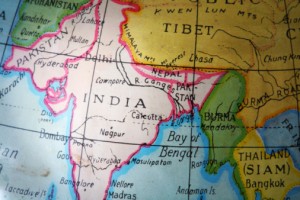A leading population research organization has discovered that lawmakers in the Indian state of Kerala are attempting to pass “The Women’s Code Bill” which will create a two-child policy aimed at stemming population growth.
 The Population Research Institute (PRI) is reporting that the Indian state of Kerala may be the next government to enact a law that forbids reproduction beyond a prescribed “quota”. Similar to what has been taking place in China for the last several decades, the Keralan law would carry criminal penalties for couples who produce more than two children.
The Population Research Institute (PRI) is reporting that the Indian state of Kerala may be the next government to enact a law that forbids reproduction beyond a prescribed “quota”. Similar to what has been taking place in China for the last several decades, the Keralan law would carry criminal penalties for couples who produce more than two children.
“For instance, if a couple were to become expectant with an over-quota child, the father could face three months of imprisonment, or a fine of 10,000 rupees (about $200 … an astronomical sum for lower-class Indians),” writes Colin Mason of the PRI.
“People or associations who spoke out against the program could be gagged with huge fines or prison sentences. And, just like China’s one-child policy, the government would refuse to acknowledge the existence of over-quota children, denying them basic rights and state benefits.”
The bill encourages abortion and makes the procedure free in state hospitals. Free contraceptives would also be made available to married couples.
The law would also allow no-court divorce and institutes a “marriage officer” who would be given the power to grant divorces outside the state’s legal infrastructure if both parties were willing. The reason for this part of the law is to “streamline” the divorce process and thus eliminate the backlog in Keralan courts.
“The net effect of all this seems to be a systematic and deliberate assault on traditional Indian family structures and values, all for the purpose of disrupting what Keralans have been doing for centuries: having large families,” Mason writes.
Ironically, the new law is being proposed in the face of demographic data that shows Kerala is already experiencing a decline in birth rates and increase in their aging population.
“In other words, even if overpopulation were a problem, the ‘problem’ would be quickly correcting itself on its own, without the need for forceful, abusive policies,” Mason points out.
But there’s another war taking place in the state between population control advocates and the Catholic Church which has established policies designed to assist large families such as providing education, health care and other benefits. Rather than seeing this for what it is – the manifestation of Church teaching – population controllers are using the media to frame the Keralan hierarchy as an irresponsible villain.
For instance, in an article recently appearing in Population Matters, the author claims the Church in Kerala is “worried about its dwindling numbers,” and as a result is “exhorting its flock to have more children.”
“In the southern state of Kerala,” the article continues, “where Catholics have long been a large, important minority, church authorities believe the state’s overall Christian population could drop to 17 percent this year, down from 19.5 percent in 1991. While they don’t have precise numbers for the Catholic population, they believe it is also dropping sharply.”
What the article ignores is the fact that the Church has always been the world’s largest charitable institution and is “in the business” of giving out free health care, food, shelter and education.
“Giving such aid to larger families is nothing new,” Mason points out. “Population Matters also makes much about the fact that some of these charities give cash benefits to large families, but so what? Large families have more mouths to feed … the money is not social engineering. It just makes sense.”
He says the problem with population controllers is that they tend to believe everybody thinks the way they do – that human beings are “a scourge on the planet at worst, and a tool to be manipulated at best,” he writes.
“But the fact of the matter is that the Catholic Church sees each human as individual and unique. It sees each person as valuable for their own sake, and it sees each human fertility decision as intensely private and individuated. And as such, the Catholic Church has always been in the business of helping people live better lives. Sometimes helping people live better lives means providing them with free health care or education. Sometimes it means giving them cash bonuses to help them feed their families.
“And sometimes, it means leaving people alone to make their fertility decisions in the privacy of their bedrooms. The Keralan government could stand to learn something from the Catholic Church.”
© All Rights Reserved, Living His Life Abundantly®/Women of Grace® http://www.womenofgrace.com









